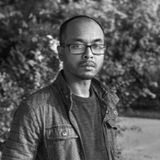In this talkshow, we wish to discuss the pitfall of constructing a simple and essentialist narrative regarding Islam that depicts it as an oppressive religion and culture, whilst at the same time pointing out the concrete oppressions that often empower such narratives. At the same time, we wish to discuss the theological views regarding oppression in the discursive tradition of Islam.
It is a common trend in contemporary media and politics to represent Islam as the name of an oppressive religion and/or culture. Oppressions that often gets associated with Islam in such representations and debate covers broad ranges; such as oppression against women, religious minorities etc. While it can be argued that many such representations of Islam are misrepresentations, since they generally essentialize Islam as a religion or repository of culture by only pointing towards certain narratives and interpretations regarding Islam. These forms of representations often deliberately ignore or remain in ignorance about the diverse opinions and interpretations that are part of the discursive traditions of Islam.
However, a simple deconstruction of such “Islamophobic” narratives and representations often fails to address the concrete oppression that often turns Muslim youth critical about their religion and culture to the point that they find it much easier to adopt narratives against Islam which are also shared by the the far-right of the West. Simply pointing out their narratives regarding Islam as Islamophobic and racist is not always enough, as their view of Islam as an oppressive religion is often shaped by concrete experience of oppression.



